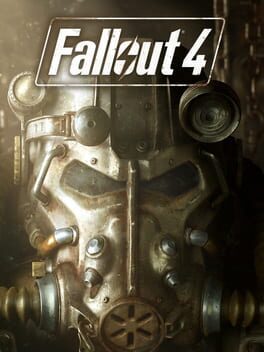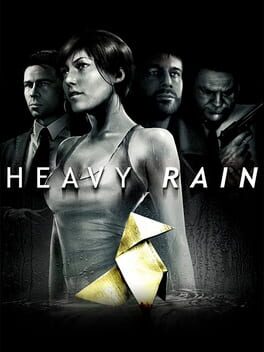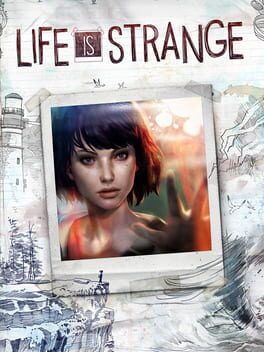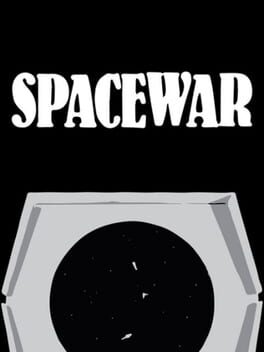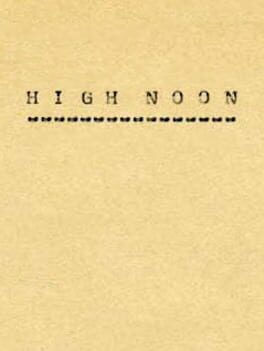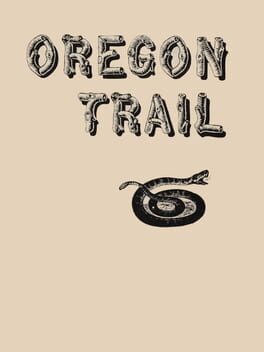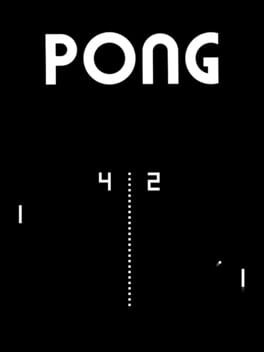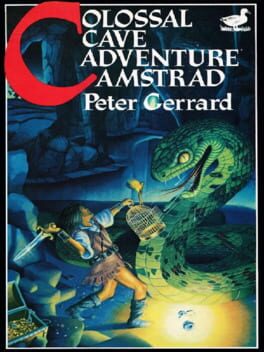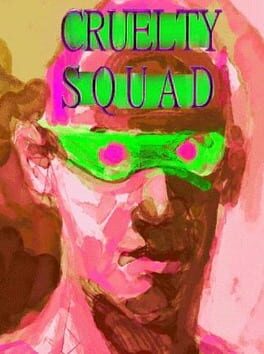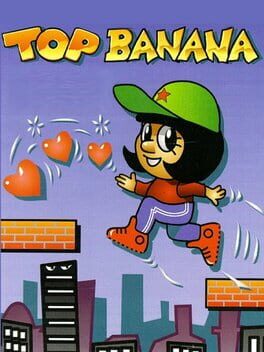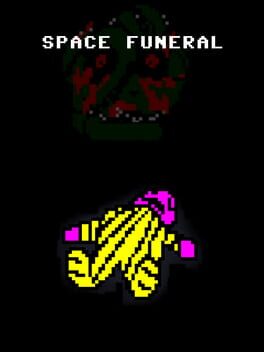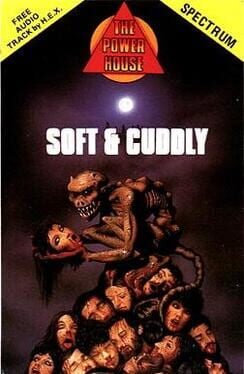DiscountTsun
45 reviews liked by DiscountTsun
Fallout 4
2015
In 1997, a game called Fallout spilled out into the world. Under the guidance of a nerd named Tim Cain, it was initially a hobby project until more and more people latched onto it, adding their talents and thoughts to the potluck that would eventually spawn the most annoying group of cryptofascists this side of Warhammer 40,000.
Drawing on their love of pulp fiction, retrofuturism, XCOM, sci-fi movies and a tabletop system they liked (GURPS, which is absent from history for a very good reason), this vast pool of influences eventually calcified and become Fallout 1.
This story had already played out several times across modern culture by the time Fallout came into existence. It is the basis of Star Wars, modern western comics as a medium, Gundam, Warhammer... Really, you can pick any longrunning and influential franchise to find the same story of one passionate person and their team of equally passionate collaborators drawing on a huge pool of influences to make something unique.
Fallout 1 is a great game. If I ever made a list of games you should play before you die, it'd definitely be up there. Rather uniquely for the post-apocalyptic genre, it's more focused on humanity pulling itself out of the ruins of a long gone civilization than it is on the long gone civilization itself. Compared to what came after, it's a far more somber and reserved experience where the potential of combat occurring is more like a sword of damocles than a regular occurrence. Sure, it has every trope you likely expect from the genre (mutants, bandits, factions mimicking old world stuff like cowboys), but those tropes are more of a deconstruction than anything; they're portrayed as kind of pathetic for having an obsession on old iconography, because there is a now in front of you and it needs help to be built and maintained. There's a reason the BoS are assholes in this one.
Sadly, much like every example I gave two paragraphs ago, Fallout has succumbed to what I nowadays refer to as the Lucas Horizon. George Lucas combined his love of westerns, samurai, Kurosawa movies, WW2, Flash Gordon and sci-fi to make Star Wars.
The people making Star Wars after him are using their love of Star Wars to make more Star Wars.
Despite calling it the Lucas Horizon, however, I feel Fallout embodies it more than any other franchise. Even starting with Fallout 2, the series began to develop an obsession with itself. Rather than letting the influences and references form a foundation to build a work upon, they became the central part of the work. Now, Fallout 2 isn't as bad about this as every game that came after it, and indeed it at least bothers to expand on Fallout 1's themes, but at the end of the day it's ultimately more about pop culture and Fallout stuff than anything else.
Fallout 3 is where the series begins to veer off into the Lucas Horizon for good. After two games that were about the gradual rebuilding of civilization and the ways in which people built a new life from the wreckage of American civlization, 3 did a massive 180 and focused specifically on the wreckage, setting itself in a wasteland literally called The Capital Wasteland, with all of the progress from 1 and 2 seemingly undone.
The game opens with a hollow recreation of Fallout 1's intro, once again narrated by Ron Perlman and featuring shots of a ruined world set to a dissonant song by the Ink Spots as the first game did, before revealing yet another person in power armor. The difference, though, is that while Fallout 1 used it as a prelude to the story, Fallout 3 uses it to signal just how much it adores the wreckage and the retrofuturism and the distinct Fallout iconography that Bethesda yoinked at a garden sale. Fallout 3 rolls out its new power armor model to make you go "wow, cool!" while Fallout 1's intro prominently displays the T-51 being worn by American soldiers extrajudicially murdering prisoners of war.
If you've spent any amount of time in gaming circles, either directly or indirectly, you've likely heard the phrase:
"It's a good game, but a bad [franchise] game".
Personally, I hold this phrase in contempt as it's almost often deployed as a means to avoid any indepth examination of what it means to be a [franchise] game, and is often code for "it's not like the games I love".
Fallout 4 is my one exception. It is a good game, but an atrocious Fallout game. We'll be talking about the latter part exclusively, you can infer my thoughts on 4's gameplay from the Starfield review I did.
Why is it an atrocious Fallout game?
Because it's not about the rebuilding of society. It's not about the struggles faced by those seeking to carve new life out of the bones of the old. It's not even about kitschy pop culture references or the ways in which veneration of the past drives one straight into the past's sins.
It's about Fallout. It's about Vaults, Vault Suits, power armor, the Brotherhood, retrofuturist shit, dandy boy apples, whatever comes to mind when you think "Fallout", that's the core of Fallout 4.
Now, don't get me wrong, there are some themes present in Fallout 4, but they're superficial at best. Any talk of 'rebuilding' is just a pretext to shove the settlement mechanic on you, and this game treats a question as intense as "If artificial life possesses humanity, is that natural humanity or is it as artificial as its host?" with all the seriousness of The Room tackling breast cancer.
Discourse surrounding this game points to the voiced protagonist as the source for many of its woes, but I'd argue that the protagonist being a pre-war survivor does more harm than anything else. Intrinsically binding the player to the old world means everything encountered is filtered through the lens of that world. For all its faults, Fallout 2 having the player be an insulated tribal whose confusion at the world around them stemmed from their post-war experience was a much better angle than simply having the protagonist be a 200 year old.
In the non-Bethesda titles, the pre-war period is explicitly associated with the concept of rot and decay. The Brotherhood donning the armor and imagery of pre-war America led them to become just as paranoid, isolated and self-righteous as pre-war Americans did. Ghouls, ancient pre-war survivors, were rotting zombies in the most literal sense of the word. Shady Sands becoming the NCR was explicitly portrayed as a bad thing, because its citizens assumed a mantle of relative safety in exchange for shouldering the foolishness that led to the state of the world as it is now - to the point of recreating American jingoism and oil barons in the new world.
Most obviously, the Enclave were the last bastion of the US government and their very existence is seen as a virus purely because they wish for some inane ideological and biological purity. Fallout 3, despite having more flaws than I can count, at least got it right by involving a literal virus in the Enclave's plans just to make it obvious.
In New Vegas, the Enclave's power armor has been forgotten by almost everyone. Those that are aware of it consider it to be either a hate symbol or a bitter memory of a failed state. You have to go through a long and messy quest to get it, and it's given as a 'reward' once you're told that the Enclave was a dream doomed to die from the start. The game rubs your face in how pathetic its remnants are; sad old people who struggle to deal with the cognitive dissonance resulting from them missing the Enclave yet being fully aware it was just another death cult. Should you convince one of your party members to don it in support of the """best ending""", he's immediately identified as a war criminal and given a life sentence.
In Fallout 4, it starts spawning at level 28.
But really, it's the Brotherhood who embody this complaint more than anyone.
In part because they've become the Enclave, complete with vertibirds and racism.
In a better work, this would be remarked upon. Someone would point out that there's a bitter, harrowing irony to be found in the Enclave's biggest enemy stumbling into their ideology, or that a group that was once positioned to be the country's heroic saviours were now out enforcing curfews and killing people without trial. That something once considered a reassuring symbol to the wastes had now become something people dread.
Fallout 4 instead trips over its own feet, because it's more concerned with making you - the viewer - think the Brotherhood are cool. They debut in an epic, memorable cutscene where a fucking blimp flies into the map alongside a vertibird swarm and a dramatic announcement, potentially accompanied by Nick Valentine quoting a passage from The Raven in dismay. Your personal introduction is given an equal amount of weight, featuring a cool vertibird sequence up to the Prydwen which caps off with a rousing speech from a guy deliberately designed to look like modern neo nazis. Progress the story, and they bust out Liberty Prime - Fallout 3's giant death robot who rants about communists in a hammy voice and literally can't be killed.
Being a queer person who has several other characteristics that make me a target for fascists, I'm very sensitive and hypercritical of how they're portrayed. One of my most strongly held beliefs regarding the creative arts is that, much like suicide, a creative should be very considerate of how they depict fascism as I feel it can have very very very lasting real world harm.
See, the other thing Fallout has in common with those other IPs I listed up above is that all of them have had their iconography co-opted by fascists, because all of those IPs eventually doubled down and made their in-universe fascists seem cool to the average viewer. Star Wars doubled down on the Empire's cool visuals, Gundam gave tons of screentime to Zeon, Marvel keeps bringing back The Punisher uncritically, and Warhammer 40k continues to glorify the Imperium even as queer people are made to feel unsafe and ostracized within the community.
I'm only speaking from personal experience here, but the Fallout fanbase is rife with nazis. For a time, Enclave iconography and visuals were pretty much synonymous with the more rightwing elements of the fanbase. Despite New Vegas being popular among queers, the series as a whole doesn't get much discussion because said discussion is mostly driven by rightwingers. The reactions to The Frontier mod contain a lot of the word "degenerate", which I think speaks for itself.
For Bethesda to try so hard to make the openly and textually fascist Brotherhood seem cool and admirable feels irresponsible given the franchise's history. There is a very good reason most other videogames do not give you a "bad guys campaign" when they're approaching anything political, after all. Even Skyrim, this game's immediate predecessor, handled the subject with infinitely more grace.
Such problems are the natural consequence of Bethesda equating "good writing" with "there is a Fallout Thing present". The moral, social and political implications of The Institute being a 200 year old ancient conspiracy who rule an entire region from the shadows are glossed over in favour of "Look! Synths and pre-war aesthetics!". Almost nothing touches on the messy politics of the Railroad and their written goal, which is altruistic on paper but in practice has accidentally become a supremacy movement that carries out 'justified' violence for the sake of the violence itself. The Vaults are no longer horrific dungeons of suffering that represent the sheer moral decay, disregard for life and ruthless exploitation that occurred under Fallout's late stage capitalism, they're a thing you can build if you buy a DLC.
This game's intro, while not as egregious as Fallout 3's, is still a sign of what's to come. Slapped into a pre-war house filled with the worst of Bethesda's fixation on that god awful retrofuturism aesthetic they've concocted, you waddle around interacting with things for a few moments before you get to see the bomb drops in person, run past the military (clad in power armor, naturally) and get admitted to a Vault.
It's all very... theme park. "Look, you can SEE the bombs drop!" doesn't really work when the core of Fallout isn't specifically that the bombs dropped, but what caused them to drop. The erasure of context in favour of simple imagery is a rare moment of honestly from Bethesda, though perhaps an unintended one.
It is not, however, anywhere as honest as Nuka World, a DLC which turns the Fallout world into a more theme park by being set in a literal god damn theme park. Most people have already said it, but the DLC forces you to side with deeply evil raiders to even experience it which is a bad start. Not as bad as the rest of the content, though. Peeling off their mask to reveal their intent, Nuka World shoves you through a series of dungeons utterly caked in Fallout's iconography and original stuff, so much so that it feels like a self-parody from Bethesda at times.
The ultimate tragedy of Fallout as an IP, and specifically the Vault Boy, is that both were very heavily rooted in criticisms of the uniquely insidious ways in which capitalism will weaponize things for its own goals. The peppy and cutesy marketing in-universe was meant to cover up a deeply rotted hyperfascist surveilance state which was willing to annex its neighbours due to deeply rooted Sinophobia. The Vault Boy in particular is a goofy, cutesy cartoon mascot meant to encourage people to sign up for sickening, amoral experiments headed by a company so detached from humanity that it saw a nuclear war as an opportunity.
Bethesda sadly now own Fallout, so the Vault Boy is merchandise, used to entice people to sign up for sickening, amoral experiments headed by a company so detached from reality that they thought Starfield could stand on its own merits.
Drawing on their love of pulp fiction, retrofuturism, XCOM, sci-fi movies and a tabletop system they liked (GURPS, which is absent from history for a very good reason), this vast pool of influences eventually calcified and become Fallout 1.
This story had already played out several times across modern culture by the time Fallout came into existence. It is the basis of Star Wars, modern western comics as a medium, Gundam, Warhammer... Really, you can pick any longrunning and influential franchise to find the same story of one passionate person and their team of equally passionate collaborators drawing on a huge pool of influences to make something unique.
Fallout 1 is a great game. If I ever made a list of games you should play before you die, it'd definitely be up there. Rather uniquely for the post-apocalyptic genre, it's more focused on humanity pulling itself out of the ruins of a long gone civilization than it is on the long gone civilization itself. Compared to what came after, it's a far more somber and reserved experience where the potential of combat occurring is more like a sword of damocles than a regular occurrence. Sure, it has every trope you likely expect from the genre (mutants, bandits, factions mimicking old world stuff like cowboys), but those tropes are more of a deconstruction than anything; they're portrayed as kind of pathetic for having an obsession on old iconography, because there is a now in front of you and it needs help to be built and maintained. There's a reason the BoS are assholes in this one.
Sadly, much like every example I gave two paragraphs ago, Fallout has succumbed to what I nowadays refer to as the Lucas Horizon. George Lucas combined his love of westerns, samurai, Kurosawa movies, WW2, Flash Gordon and sci-fi to make Star Wars.
The people making Star Wars after him are using their love of Star Wars to make more Star Wars.
Despite calling it the Lucas Horizon, however, I feel Fallout embodies it more than any other franchise. Even starting with Fallout 2, the series began to develop an obsession with itself. Rather than letting the influences and references form a foundation to build a work upon, they became the central part of the work. Now, Fallout 2 isn't as bad about this as every game that came after it, and indeed it at least bothers to expand on Fallout 1's themes, but at the end of the day it's ultimately more about pop culture and Fallout stuff than anything else.
Fallout 3 is where the series begins to veer off into the Lucas Horizon for good. After two games that were about the gradual rebuilding of civilization and the ways in which people built a new life from the wreckage of American civlization, 3 did a massive 180 and focused specifically on the wreckage, setting itself in a wasteland literally called The Capital Wasteland, with all of the progress from 1 and 2 seemingly undone.
The game opens with a hollow recreation of Fallout 1's intro, once again narrated by Ron Perlman and featuring shots of a ruined world set to a dissonant song by the Ink Spots as the first game did, before revealing yet another person in power armor. The difference, though, is that while Fallout 1 used it as a prelude to the story, Fallout 3 uses it to signal just how much it adores the wreckage and the retrofuturism and the distinct Fallout iconography that Bethesda yoinked at a garden sale. Fallout 3 rolls out its new power armor model to make you go "wow, cool!" while Fallout 1's intro prominently displays the T-51 being worn by American soldiers extrajudicially murdering prisoners of war.
If you've spent any amount of time in gaming circles, either directly or indirectly, you've likely heard the phrase:
"It's a good game, but a bad [franchise] game".
Personally, I hold this phrase in contempt as it's almost often deployed as a means to avoid any indepth examination of what it means to be a [franchise] game, and is often code for "it's not like the games I love".
Fallout 4 is my one exception. It is a good game, but an atrocious Fallout game. We'll be talking about the latter part exclusively, you can infer my thoughts on 4's gameplay from the Starfield review I did.
Why is it an atrocious Fallout game?
Because it's not about the rebuilding of society. It's not about the struggles faced by those seeking to carve new life out of the bones of the old. It's not even about kitschy pop culture references or the ways in which veneration of the past drives one straight into the past's sins.
It's about Fallout. It's about Vaults, Vault Suits, power armor, the Brotherhood, retrofuturist shit, dandy boy apples, whatever comes to mind when you think "Fallout", that's the core of Fallout 4.
Now, don't get me wrong, there are some themes present in Fallout 4, but they're superficial at best. Any talk of 'rebuilding' is just a pretext to shove the settlement mechanic on you, and this game treats a question as intense as "If artificial life possesses humanity, is that natural humanity or is it as artificial as its host?" with all the seriousness of The Room tackling breast cancer.
Discourse surrounding this game points to the voiced protagonist as the source for many of its woes, but I'd argue that the protagonist being a pre-war survivor does more harm than anything else. Intrinsically binding the player to the old world means everything encountered is filtered through the lens of that world. For all its faults, Fallout 2 having the player be an insulated tribal whose confusion at the world around them stemmed from their post-war experience was a much better angle than simply having the protagonist be a 200 year old.
In the non-Bethesda titles, the pre-war period is explicitly associated with the concept of rot and decay. The Brotherhood donning the armor and imagery of pre-war America led them to become just as paranoid, isolated and self-righteous as pre-war Americans did. Ghouls, ancient pre-war survivors, were rotting zombies in the most literal sense of the word. Shady Sands becoming the NCR was explicitly portrayed as a bad thing, because its citizens assumed a mantle of relative safety in exchange for shouldering the foolishness that led to the state of the world as it is now - to the point of recreating American jingoism and oil barons in the new world.
Most obviously, the Enclave were the last bastion of the US government and their very existence is seen as a virus purely because they wish for some inane ideological and biological purity. Fallout 3, despite having more flaws than I can count, at least got it right by involving a literal virus in the Enclave's plans just to make it obvious.
In New Vegas, the Enclave's power armor has been forgotten by almost everyone. Those that are aware of it consider it to be either a hate symbol or a bitter memory of a failed state. You have to go through a long and messy quest to get it, and it's given as a 'reward' once you're told that the Enclave was a dream doomed to die from the start. The game rubs your face in how pathetic its remnants are; sad old people who struggle to deal with the cognitive dissonance resulting from them missing the Enclave yet being fully aware it was just another death cult. Should you convince one of your party members to don it in support of the """best ending""", he's immediately identified as a war criminal and given a life sentence.
In Fallout 4, it starts spawning at level 28.
But really, it's the Brotherhood who embody this complaint more than anyone.
In part because they've become the Enclave, complete with vertibirds and racism.
In a better work, this would be remarked upon. Someone would point out that there's a bitter, harrowing irony to be found in the Enclave's biggest enemy stumbling into their ideology, or that a group that was once positioned to be the country's heroic saviours were now out enforcing curfews and killing people without trial. That something once considered a reassuring symbol to the wastes had now become something people dread.
Fallout 4 instead trips over its own feet, because it's more concerned with making you - the viewer - think the Brotherhood are cool. They debut in an epic, memorable cutscene where a fucking blimp flies into the map alongside a vertibird swarm and a dramatic announcement, potentially accompanied by Nick Valentine quoting a passage from The Raven in dismay. Your personal introduction is given an equal amount of weight, featuring a cool vertibird sequence up to the Prydwen which caps off with a rousing speech from a guy deliberately designed to look like modern neo nazis. Progress the story, and they bust out Liberty Prime - Fallout 3's giant death robot who rants about communists in a hammy voice and literally can't be killed.
Being a queer person who has several other characteristics that make me a target for fascists, I'm very sensitive and hypercritical of how they're portrayed. One of my most strongly held beliefs regarding the creative arts is that, much like suicide, a creative should be very considerate of how they depict fascism as I feel it can have very very very lasting real world harm.
See, the other thing Fallout has in common with those other IPs I listed up above is that all of them have had their iconography co-opted by fascists, because all of those IPs eventually doubled down and made their in-universe fascists seem cool to the average viewer. Star Wars doubled down on the Empire's cool visuals, Gundam gave tons of screentime to Zeon, Marvel keeps bringing back The Punisher uncritically, and Warhammer 40k continues to glorify the Imperium even as queer people are made to feel unsafe and ostracized within the community.
I'm only speaking from personal experience here, but the Fallout fanbase is rife with nazis. For a time, Enclave iconography and visuals were pretty much synonymous with the more rightwing elements of the fanbase. Despite New Vegas being popular among queers, the series as a whole doesn't get much discussion because said discussion is mostly driven by rightwingers. The reactions to The Frontier mod contain a lot of the word "degenerate", which I think speaks for itself.
For Bethesda to try so hard to make the openly and textually fascist Brotherhood seem cool and admirable feels irresponsible given the franchise's history. There is a very good reason most other videogames do not give you a "bad guys campaign" when they're approaching anything political, after all. Even Skyrim, this game's immediate predecessor, handled the subject with infinitely more grace.
Such problems are the natural consequence of Bethesda equating "good writing" with "there is a Fallout Thing present". The moral, social and political implications of The Institute being a 200 year old ancient conspiracy who rule an entire region from the shadows are glossed over in favour of "Look! Synths and pre-war aesthetics!". Almost nothing touches on the messy politics of the Railroad and their written goal, which is altruistic on paper but in practice has accidentally become a supremacy movement that carries out 'justified' violence for the sake of the violence itself. The Vaults are no longer horrific dungeons of suffering that represent the sheer moral decay, disregard for life and ruthless exploitation that occurred under Fallout's late stage capitalism, they're a thing you can build if you buy a DLC.
This game's intro, while not as egregious as Fallout 3's, is still a sign of what's to come. Slapped into a pre-war house filled with the worst of Bethesda's fixation on that god awful retrofuturism aesthetic they've concocted, you waddle around interacting with things for a few moments before you get to see the bomb drops in person, run past the military (clad in power armor, naturally) and get admitted to a Vault.
It's all very... theme park. "Look, you can SEE the bombs drop!" doesn't really work when the core of Fallout isn't specifically that the bombs dropped, but what caused them to drop. The erasure of context in favour of simple imagery is a rare moment of honestly from Bethesda, though perhaps an unintended one.
It is not, however, anywhere as honest as Nuka World, a DLC which turns the Fallout world into a more theme park by being set in a literal god damn theme park. Most people have already said it, but the DLC forces you to side with deeply evil raiders to even experience it which is a bad start. Not as bad as the rest of the content, though. Peeling off their mask to reveal their intent, Nuka World shoves you through a series of dungeons utterly caked in Fallout's iconography and original stuff, so much so that it feels like a self-parody from Bethesda at times.
The ultimate tragedy of Fallout as an IP, and specifically the Vault Boy, is that both were very heavily rooted in criticisms of the uniquely insidious ways in which capitalism will weaponize things for its own goals. The peppy and cutesy marketing in-universe was meant to cover up a deeply rotted hyperfascist surveilance state which was willing to annex its neighbours due to deeply rooted Sinophobia. The Vault Boy in particular is a goofy, cutesy cartoon mascot meant to encourage people to sign up for sickening, amoral experiments headed by a company so detached from humanity that it saw a nuclear war as an opportunity.
Bethesda sadly now own Fallout, so the Vault Boy is merchandise, used to entice people to sign up for sickening, amoral experiments headed by a company so detached from reality that they thought Starfield could stand on its own merits.
i recognize fully that this game is a goddamn mess but i love it even so. never played anything quite so dysmorphic, so hateful, so disinterested in its own legacy and in its expectant audience (at least until drakengard 3). that it nevertheless delivers unforgettable moments in spades and pseudoscientific genre kitsch in equal proportion just solidifies it as the mgs franchise writ large, a macrocosm of vestigial feelings, directorial gratuitousness, and creeping entropy. still one of the most interesting in kojimas ouevre, astonished mgsv managed to outpace it in charlatanisms
Heavy Rain
2010
Quite possibly (and quite likely to be) one of the funniest video games ever released. David Cage is like the Ed Wood of the video game industry, but only if Ed Wood had zero charm, a legacy that’s seen as a joke rather than an inspiration, and a fandom of incredibly strange sycophants who have tricked themselves into thinking any of his stories would be able to hack it on daytime television.
Heavy Rain is an experience, and one that you legitimately owe it to yourself to play. This isn’t because it’s good, but rather because it’s atrocious. Games critics were over the moon for this back in 2010. People were desperate to totally own Roger Ebert for saying video games couldn’t be art, so they latched onto shit like this. It’s a poorly-acted, poorly-scripted, poorly-thought out mess. It's like a living guide on how not to make a game. It’s incredible. Get some friends together and make a stream night or two out of it.
Ethan Mars can have both of his children murdered and then be propositioned for sex by his new love interest while kneeling atop their graves. He then walks to his car and kills himself. This is supposed to be sad and not actually the most hilarious thing you’ve ever seen in your entire life.
Heavy Rain is an experience, and one that you legitimately owe it to yourself to play. This isn’t because it’s good, but rather because it’s atrocious. Games critics were over the moon for this back in 2010. People were desperate to totally own Roger Ebert for saying video games couldn’t be art, so they latched onto shit like this. It’s a poorly-acted, poorly-scripted, poorly-thought out mess. It's like a living guide on how not to make a game. It’s incredible. Get some friends together and make a stream night or two out of it.
Ethan Mars can have both of his children murdered and then be propositioned for sex by his new love interest while kneeling atop their graves. He then walks to his car and kills himself. This is supposed to be sad and not actually the most hilarious thing you’ve ever seen in your entire life.
Life is Strange
2015
Life is Strange
2015
Life is Strange
2015
Fallout: New Vegas
2010
This review contains spoilers
Some say he tore through the Mojave, a revenant hellbent on destruction. Others claimed she burned with righteous glory, a beacon of justice scorching the unjust, and others still claim they were just a kleptomaniac out to have a good time. Hell, I’ve heard they fell through the earth and woke up in D.C., that their mere presence would make you feel like your brain would stop processing, that they could carry a thousand pounds and run faster than the devil. End of the day, the trivia of the how and when barely matter as much as the “who”.
A decade ago, a batch of couriers set out with cargo bound to New Vegas. The whole lot of them carried worthless trinkets across the sands, a batch of diversions and a single Platinum Chip. Five couriers made it to New Vegas unscathed. Lady Luck must have had it out for the last poor bastard; the only package that mattered was signed off with two shots to the head and a shallow grave. That should’ve been the end of it, another nameless body lost to wasteland, but be it by fate, fury or spite, the dead man walked. Wasn't even two days later that the thief in the checkered suit was gunned down, 9mm justice ringing red hot. Within a week, President Kimball lost his head, the Followers of the Apocalypse were a smoking crater, the Brotherhood of Steel suffered a fatal error, and Caesar himself fell to the knife's edge. Crazy son of a gun even took the Strip by siege, running some police state ops under the table. Or at least, that's how I've heard it told.
When all is said and done, the devil's in the details. The Courier was just as much a sinner as a saint, but anyone could tell you that. Hell, I'd go as far as to say the moment-to-moment minutia doesn't matter; who cares that she traveled with a former 1st Recon sniper, or a whisky-chugging cowpoke? Will anyone remember the ghoul mechanic, the robo-dog, the Enclave reject, or the schizophrenic Nightkin?
No, even as the figurehead of The Strip, no one can really pin down the story in a way everyone can agree on. You'll hear a thousand stories, and the only two consistent factors are that some poor delivery boy got his brains blown out, and that when the dust settled, the Mohave was never quite the same. But listen to me rattle on… you know all of this. After all, that's exactly how you wanted it, right?
When you picked that platinum chip off of Benny, riddled with holes, you knew what you were doing, didn't you? How could you not; it wasn't the first time you shot the boy down. Last time, it was a Ripper to the gut, this time his own gun to the back of the head. Did everyone every figure out how Maria was in your hand and in his back pocket? When the mighty Courier crushed the Great Khans beneath their heel, did you so much as flinch, or was this just another quest in your wild wasteland? Even with cannibals licking their lips with you in their eyes, you smiled, like this was an old joke reminding you of better times.
A decade ago, you woke up in Doc Mitchell's practice, head like a hole with a big iron on your hip. Now, you're back in Goodsprings. Everyone acts like this is new, fresh, like you haven't done this a thousand times over. I know this story, you know it even better. Still, it's hard to stop yourself from doing the same old song and dance, isn't it? For as much as patrolling the Mojave can make you wish for a nuclear winter, you keep coming back. It's not just war; nothing about the desert ever changes. But that's just how you like it, isn't it, Courier?
Vegas never changes. You never change.
A decade ago, a batch of couriers set out with cargo bound to New Vegas. The whole lot of them carried worthless trinkets across the sands, a batch of diversions and a single Platinum Chip. Five couriers made it to New Vegas unscathed. Lady Luck must have had it out for the last poor bastard; the only package that mattered was signed off with two shots to the head and a shallow grave. That should’ve been the end of it, another nameless body lost to wasteland, but be it by fate, fury or spite, the dead man walked. Wasn't even two days later that the thief in the checkered suit was gunned down, 9mm justice ringing red hot. Within a week, President Kimball lost his head, the Followers of the Apocalypse were a smoking crater, the Brotherhood of Steel suffered a fatal error, and Caesar himself fell to the knife's edge. Crazy son of a gun even took the Strip by siege, running some police state ops under the table. Or at least, that's how I've heard it told.
When all is said and done, the devil's in the details. The Courier was just as much a sinner as a saint, but anyone could tell you that. Hell, I'd go as far as to say the moment-to-moment minutia doesn't matter; who cares that she traveled with a former 1st Recon sniper, or a whisky-chugging cowpoke? Will anyone remember the ghoul mechanic, the robo-dog, the Enclave reject, or the schizophrenic Nightkin?
No, even as the figurehead of The Strip, no one can really pin down the story in a way everyone can agree on. You'll hear a thousand stories, and the only two consistent factors are that some poor delivery boy got his brains blown out, and that when the dust settled, the Mohave was never quite the same. But listen to me rattle on… you know all of this. After all, that's exactly how you wanted it, right?
When you picked that platinum chip off of Benny, riddled with holes, you knew what you were doing, didn't you? How could you not; it wasn't the first time you shot the boy down. Last time, it was a Ripper to the gut, this time his own gun to the back of the head. Did everyone every figure out how Maria was in your hand and in his back pocket? When the mighty Courier crushed the Great Khans beneath their heel, did you so much as flinch, or was this just another quest in your wild wasteland? Even with cannibals licking their lips with you in their eyes, you smiled, like this was an old joke reminding you of better times.
A decade ago, you woke up in Doc Mitchell's practice, head like a hole with a big iron on your hip. Now, you're back in Goodsprings. Everyone acts like this is new, fresh, like you haven't done this a thousand times over. I know this story, you know it even better. Still, it's hard to stop yourself from doing the same old song and dance, isn't it? For as much as patrolling the Mojave can make you wish for a nuclear winter, you keep coming back. It's not just war; nothing about the desert ever changes. But that's just how you like it, isn't it, Courier?
Vegas never changes. You never change.
